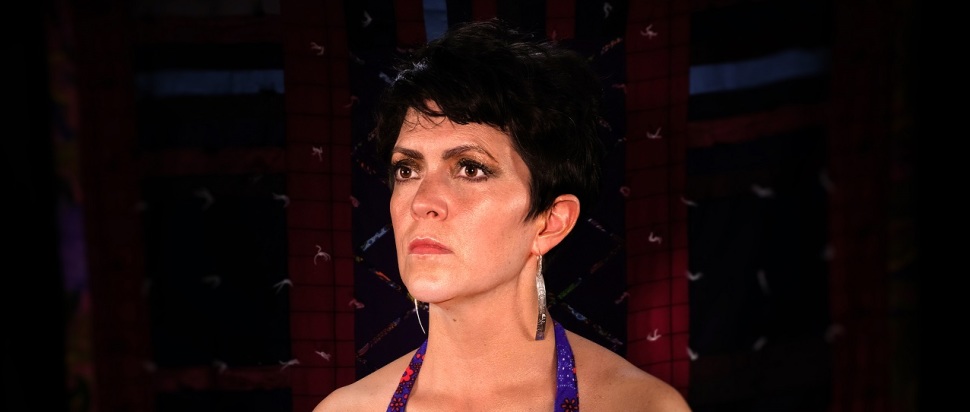Reclaiming Power: Tara Beagan introduces Deer Woman
Tara Beagan's play Deer Woman was described as 'a work of immense power and artistry' by critics in Australia. Now, ahead of its European premiere at the Edinburgh Fringe this Summer, Beagan explains why it's a story that had to be told
For three decades, a crisis has been sweeping Canada that has been largely, and shamefully, ignored. Thousands of Indigenous women, girls and non-binary people have gone missing in the last thirty years – an epidemic that the Canadian Government refused to investigate until earlier this year.
In May, a report by the National Inquiry into Murdered and Missing Indigenous Women and Girls was finally released. The findings of the report are harrowing.
"Estimates are as high as 4,000 such cases – yet little to nothing is being done about it," says Tara Beagan, a Ntlakapamux and Irish Canadian theatre artist, who wrote Deer Woman in response to the Genocide. "What a little person like me can do is tell one story that inspires a feeling of empowerment. One that acknowledges the rage from such a powerless standpoint to reclaim power."
The one-woman show was also written as "a partial antidote to the plays and films written by settler Canadians about the MMIWG [Missing and Murdered Indigenous Women Genocide].
"These crimes are enabled by many settlers, and then they go ahead and profit from it by telling our stories," Beagan tells me. "I consider that appalling."
Deer Woman is a far cry from the victim narrative perpetuated by settlers. Its protagonist Lila is tough and complex, a multi-dimensional character who responds to the murder of her younger sister by formulating a plan for revenge. She is played by the Blackfoot actor Cherish Violet Blood, whom Beagan describes as "riveting, and so very brilliant in [the] role."
Lila is taught to hunt and slaughter deer by her father as a child, skills no doubt invaluable to the Army she later joins; heartbreakingly, she is deployed overseas when she learns of her sister's death. "It's no accident that the armed forces in Canada have special recruitment programmes aimed at Indigenous peoples," says Beagan, of the high numbers of Indigenous people recruited to defend a Nation that does little to protect their communities. "These institutions tear down the individual and build them back up as cogs in machines... This is possible because all of the genocidal schemes [the Government] have already enacted can make an Indigenous person feel hopeless and without community in Canada."
Does the play call for change? "It accuses a nation and will not stand idly by, allowing for the system to continue its atrocities," Beagan replies. "It also cracks a lot of jokes at the expense of the hegemony."
It would be reductive to minimise Deer Woman to its political message, though – Beagan is certain that “whether or not you think it's important won’t impact your excellent night at the theatre.” The show was given high praise at 2018’s Sydney Festival for Blood’s powerful performance, Beagan’s evocative writing and creative decisions that saw Blood deliver her confessions through the lens of a smartphone that projected close-ups of her face across massive screens on-stage. “Social media has been a great leveller in terms of access, across race and class”, says Beagan. “Lila is taking action to bring vengeance to the voiceless; and she is ensuring everyone with a wifi signal can hear her war cry.”
Deer Woman is at CanadaHub, King’s Hall, 31 Jul-24 Aug (not 5,12,19), 2.30pm, £11 (£9)
